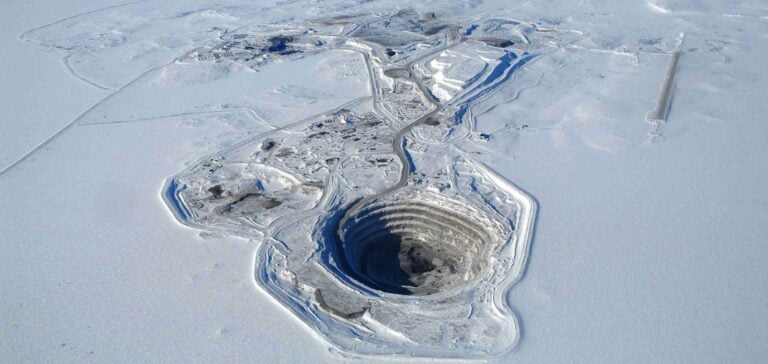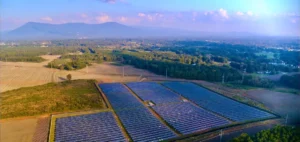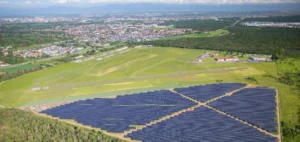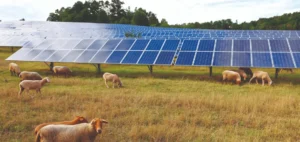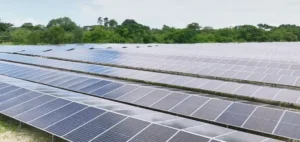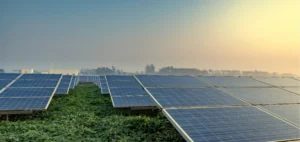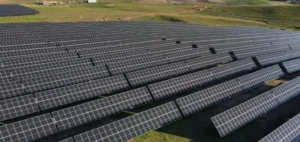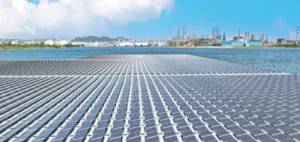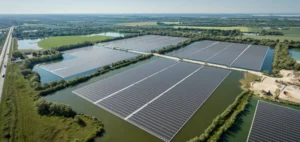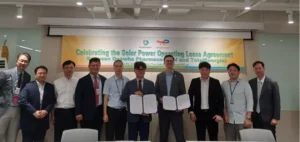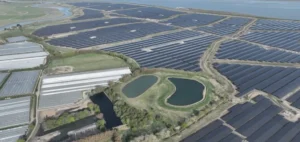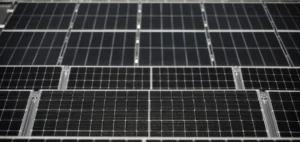Anglo-Australian mining giant Rio Tinto announced on Thursday that it would soon begin construction of the largest solar power plant in Northern Canada on the site of its Diavik diamond mine, two weeks after lowering its 2025 climate targets.
A step towards energy independence at the Diavik mine
The plant will generate a quarter of the energy needed to run the mine until its closure in 2029. Rio Tinto plans to install 6,600 solar panels on the Diavik site, 300 kilometers northeast of Yellowknife near the Arctic Circle, to generate around 4,200 megawatt-hours of electricity per year.
In operation since 2003, the mine’s lifespan is drawing to a close, with commercial diamond production scheduled to cease in 2026, before complete closure in 2029. The bi-facial solar panels will generate electricity not only from the sun’s rays, but also from the light reflected off the snow, which covers the mine for most of the year.
“This important project reinforces our commitment to reducing our carbon footprint,” Angela Bigg, president and COO of the Diavik mine, emphasized in a statement on Thursday.
Rio Tinto pursues decarbonization at Diavik despite indirect emissions challenges
At the end of July, Rio Tinto said it was unlikely to meet its greenhouse gas reduction targets by 2025 due to “underlying emissions growth” in some parts of its business. On Thursday, the company said it was “advancing decarbonization initiatives across its global operations” with a view to achieving “carbon neutrality” by 2050.
However, this target does not take into account indirect emissions (known as “scope” 3), which are much higher than those generated by the company’s operations (known as “scope” 1 and 2). These are emissions from third parties who burn coal in mines or use iron ore to make steel, for example. Construction work on the plant in Canada’s North will begin in the coming weeks, with completion scheduled for early next year.

